Stage Beauty: Why I Love This Movie + Icons
18 icons from 4 stage productions and 1 movie version of Stage Beauty
Also, a long-winded explanation of why I love Stage Beauty and why it's full of gender play and love and rainbows, and also why it's super easy to re-imagine its stupid, heteronormative ending in a kinkier, more progressive fashion.
This post is a fill for the gender play square on my

kink_bingo card!
Teasers:

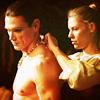

"Never forget: you're a man in woman's form. Or was it the other way around?"
001

002

003

004

005

006

007

008

009

010
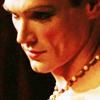
011
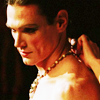
012
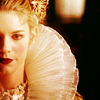
013

014

015

016

017

018

Table created with accio.nu'sicon table(less) generator
Icons 1-8 are from four different stage productions of Compleat Female Stage Beauty; 9-18 are from the 2004 movie Stage Beauty.
Textures used are from lookslikerain, cookiestome, and navras_rheya.
Why Stage Beauty is Super Fun and Full of Gender Play:
Oh, Stage Beauty. Let me tell you about Stage Beauty.
Stage Beauty is a 2004 movie based on a play by Jeffrey Hatcher called Compleat Female Stage Beauty. The screenplay for the movie was also written by Hatcher, so there's a high degree of fidelity between movie and play. The story is based roughly on real people, and a real change in English law, although the specific story is entirely fictional.
Here's the jist: it's the mid-17 century and Edward "Ned" Kynaston is the most famous actor on the English stage. Our friend Ned is famous because he is a) gorgeous and b) a super good actor. In fact, he's considered by some people to be the most beautiful woman in the world; one of the great diarists of the time, Samuel Pepys, calls him a "compleat female stage beauty." Because Ned plays women. As it is illegal for women to act on stage, men and boys portray those parts, and Ned has trained his whole life to do so. At the beginning of the movie, he's portraying Desdemona in Othello.
He is very pretty. See!
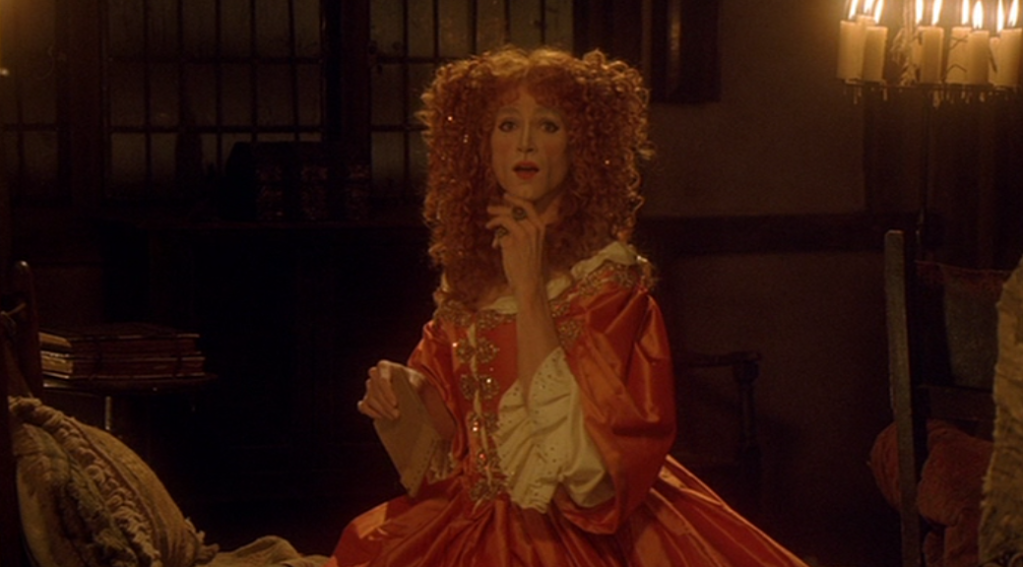
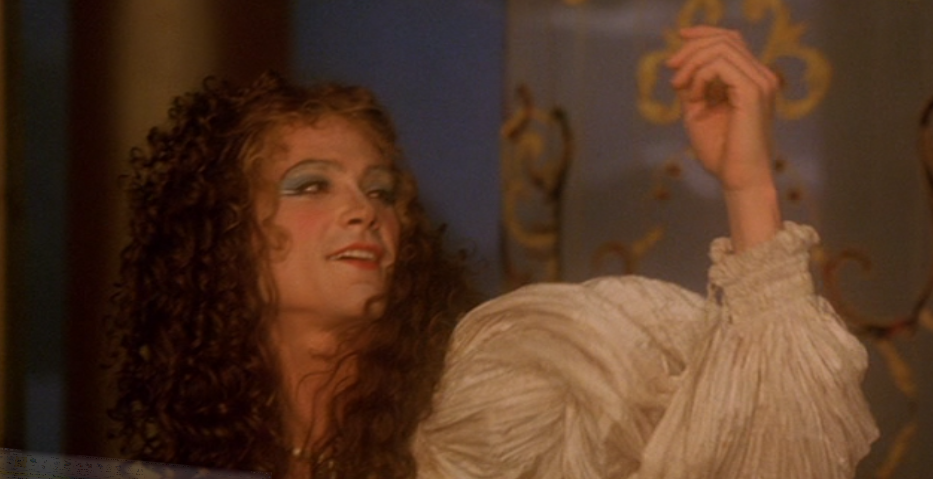
Ned loves his job. He loves performing femininity; he loves his costumes and wigs; he loves his fame and interacting with fans. For him, gender play is more than putting on a mask. He describes with pride the long training sessions he had with his old tutor, when he spent months working on movement and intonation. It's not only part of his identity; it's a source of incredible pleasure.
I'm using "he" because that's how Ned refers to himself in the film, but of course, it's the 17th century, and Ned's trying to fit his sense of self into a binary gender system. Ned makes lots of twisty statements like this when he's describing his relation to gender:
NED: "[My tutor] said, 'Never forget: you're a man in woman's form.' *pauses, thinks* Or was it the other way around?"
or
(in response to someon who suggested that his best role was Rosalind, a Shakespearean heroine who dresses up as a man): "Do you know why the man 'stuff' seems so real? Because I'm pretending...If you saw him without the her he lives inside, he wouldn't seem a man at all."
So Ned's sense of gender is fluid. (I'd love to see some fanworks where Ned is straight-up trans. *adds to to-do list*) Regardless of his gender, though, he has a fascinating, eroticized, and kinky relationship to the performance of gender, and especially a particularly ornate style of femininity/femaleness. He loves the physicality of playing a beautiful, delicate woman, of moving gracefully, of making his voice go soft and bell-like. Billy Crudup does a great job of portraying Ned's sheer pleasure in those performances.
But he also takes pleasure in the idea of there being different pieces of himself that disrupt people's expectations. There's a scene in the beginning when a couple of lady fans take Ned--in full Desdemona costume--out in a carriage. They're fascinated by the idea that Ned has a cock under his dress, and Ned has great fun drawing their hands up his skirts and in hearing their gasps of aroused surprise when they feel his cock. (You can see part of that scene in the trailer below.)
Ned also has a boyfriend: the Duke of Buckingham. The Duke likes to fuck Ned with nothing on but a wig. At their midnight rendevous, the Duke shows him a playbill that claims there's a girl out there somewhere playing Desdemona. Ned is incensed.
"But. A woman playing a woman - what's the trick in that?"

Then there's Mariah. Mariah is Ned's assistant, and she is both a complete fangirl for Ned and desperate to be an actor. In fact, at the beginning of the film, she's borrowing Ned's wigs and sneaking off to perform in a tavern (the performance that Ned heard about!), where she pretends to be a man playing a woman. She, too, I would argue, is really into gender play. She's fascinated by the way that Ned performs female characters, and endeavors to copy Ned's performances, practicing his gestures and soft, flowy movements. She catches Ned with the Duke, and is shocked. My reading of this is that it's jealousy and not homophobia.
This is Mariah, as played by Claire Danes, helping Ned to practice his death scene. (She's playing Othello here, who suffocates Desdemona with a pillow.)
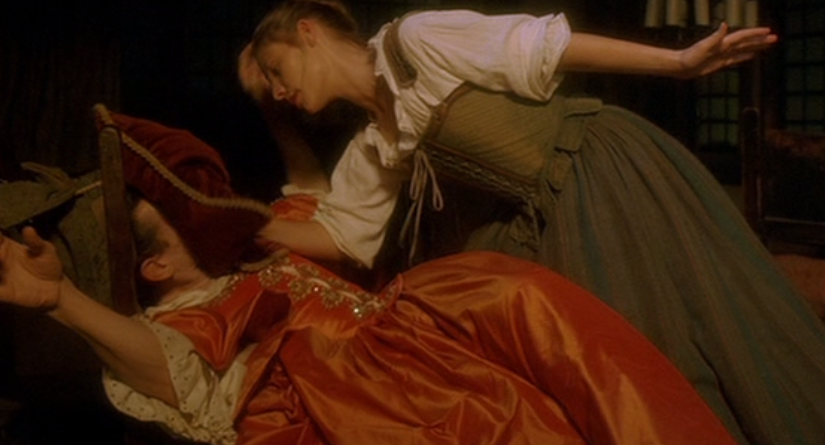
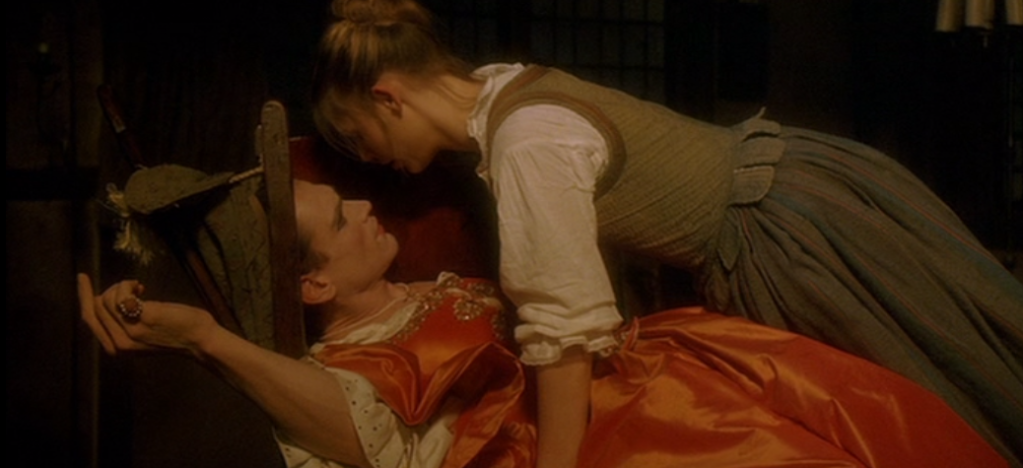
Whoops! Mariah lost her balance and ends up holding herself above Ned. Ned is all about taking the next step when you've got two lovely ladies pressed up against each other, but Mariah's shy and unsure and maybe a little jealous of the ladies who felt Ned up earlier in the evening.
Other things that are lovely about this movie?
RUPERT EVERETT is King Charles II. He has, as you might expect, many King Charles Cocker Spaniels. And Nell Gwynn, one of the most famous royal mistresses in history, is pretty awesome in this film. Her lower class origins are made fun of, but she's also very assertive, trying to help out Mariah and other women succeed on the stage.
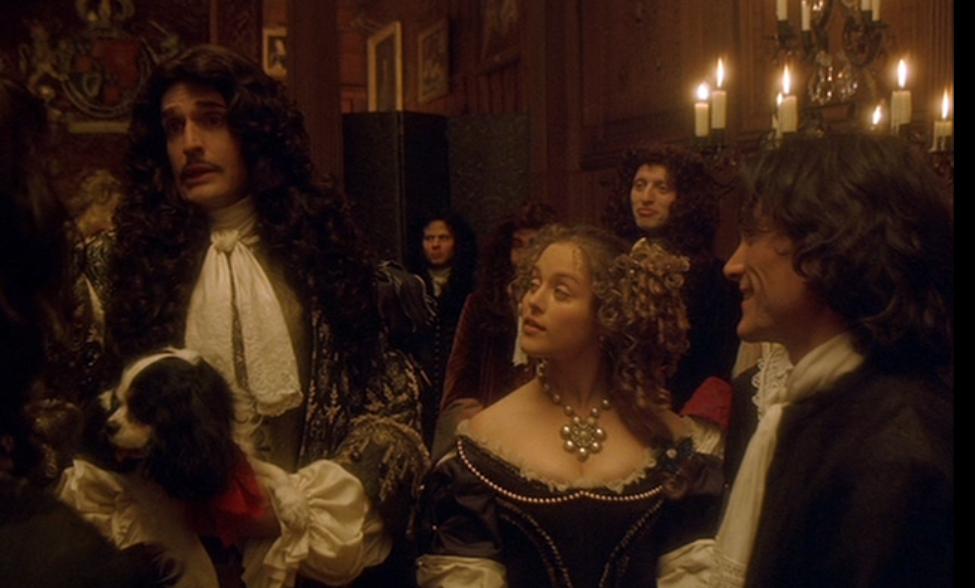
They're divine. DIVINE. Especially when they themselves are engaging in a little gender play for a place musical. They seem to be dressed up as each other, which is just awesome.
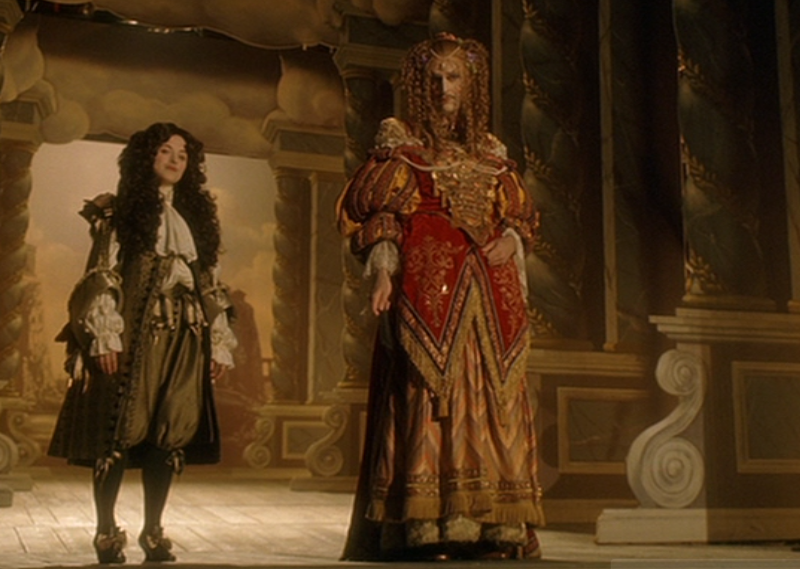
And okay, so it's not all rainbows and unicorns. Ned may have fans, but those same people have mixed feelings about nontraditional gender roles. Ned gets called a "whore" and a "bum-boy" and treated like a sexual novelty for the consumption of the elite. And his problems get even bigger when the King declares that it's legal for women to act on stage, and his very own assistant becomes the first woman actor.
Convinced? Wanna see it? Take a peek at the trailer and the content notes below and go do so! (After the content notes are spoilers where I talk about the plot and ending.)
Content Notes for Stage Beauty:
This film is rated R and contains homophobia, sexism, attempted non-con, and explicit violence that is related to homophobia and gender policing. The ending is also problematic in that it seems to endorse gender essentialism (women should act like "women," and men should act like "men"), but I think it undermines itself in ways that allow for more positive readings. I'll talk about that below.
Spoilers!, or What Happens in Stage Beauty:
Ned is pissed when he finds out that it's his own assistant who's been the woman acting his part. He reveals her to the King in a fit of spite, but the King (in a fantastic speech by Rupert Everett) thinks it would be fun to see women perform, and gives permission. Well. Ned is even more pissed now, because his job is threatened. When Mariah shows up to audition for a supporting role in Othello, Ned gives her a scathing review. One problem: Nell Gwynn was listening in and is enraged that he would treat women so badly. She goes straight to the King and convinces him to make it illegal for men to act in women's roles. At the same time, Ned is lured away from the theater, attacked, and badly beaten by thugs belonging to some of the elites who felt wronged by him in the beginning of the movie.
Things go badly for Ned after this. He has no job, and he can't find work, since his career of choice isnow illegal. His boyfriend, the Duke, breaks up with him in a heartbreaking spiel of homophobia. "I don't want you. When I spent time with you, I always thought of you as a woman. ..I'd think, here I am in a play, inside Desdemona. Cleopatra. Ophelia. You're none of them now."
As a last resort, Ned sneaks into the palace to beg the King to allow him to act. Mariah is there with other elites, and she tries to help Ned out by proposing that he perform a man's role in order to prove himself. Ned looks at her askance, but she's prods him, saying that it may convince to King to let him play women. He attempts a soliloquy by Othello, starting off with a deep, masculine voice that is as much a performance as any other. But he slips out of it: his wrists flip up in one of his feminine, theatrical gestures; his voice jumps up into a higher register. Ned starts to cry when he realizes that he can't do it, and even Nell starts look as if she regrets changing the law.
I love this scene. It breaks my heart every time. Because Ned is up there trying to play Othello, and the King of England is judging him while wearing a dress. Ned had come in during the middle of a palace musical, in which the King was performing a woman's part and Nell performing a man's. And looking on is the assembled court of King Charles II, so it's incredibly ornate. Everybody is wearing makeup. Everybody is wearing a wig. Everybody is playing a part. And you're painfully aware of how arbitrary it is that Ned is being singled out and derided for wanting to play his part.
Some time after this, Mariah is having a career crisis; she may be the first woman actor, but she's worried that she's not actually any good. She goes to find Ned, who is playing a tavern, singing raunchy songs while half drunk, and picking up his skirts for jeering audiences. Mariah comes in during one of these displays, is horrified, and marches up on stage to grab Ned. The stage mistress tries to stop her, but Mariah shouts, "I want the lady!" and pays her 5 pounds to leave them alone. She takes Ned offstage.

(I, er, really like this short scene, because we get both Mariah and Ned in full, satiny dresses, and Mariah actually calls Ned a lady. It fuels all the plot bunnies I have about Ned being trans and them living together as beautiful lady actresses and doing kinky dress-up scenes together.)
The next scene is where, I think, the movie (and the play, I presume) starts to go really downhill in terms of essentializing gender. It's the next morning, in an inn somewhere, and Mariah has stripped Ned down and cleaned him off. After some conversation, she shucks her own dress and climbs in bed with him.
Mariah then asks about the mechanics of gay sex, and Ned stutters, explaining, even in gay sex, there's a "man" and there's a "woman," i.e. a top and a bottom. He says that he was the "woman." And then, because Ned is a hands-on sort of teacher, they try out different positions. Each time, Mariah asks, "Who are you?" or "Who am I?", and Ned explains each time who is the "man" and who is the "woman." They get rather breathless from this, with Ned ending up repeating, "You're the woman. You're the woman."
So the not-so sympathetic but perfectly valid critique here is that, over the course of this scene, they are settling into their "real" genders: Mariah is the real "woman." Which is bullshit, obviously. In my own, fannish counter-reading, I like to think that they're really getting off on the play itself, in the genderswitching and in each other's performances. It's not that Mariah is the real woman; it's that Ned is turned on by Mariah-as-woman. I think this is backed up by what happens next: Ned and Mariah use their hands to make the graceful, theatrical gestures that they both love, moving their hands together and touching each other's faces in stylized, "feminine" ways. It's gender play at its finest.
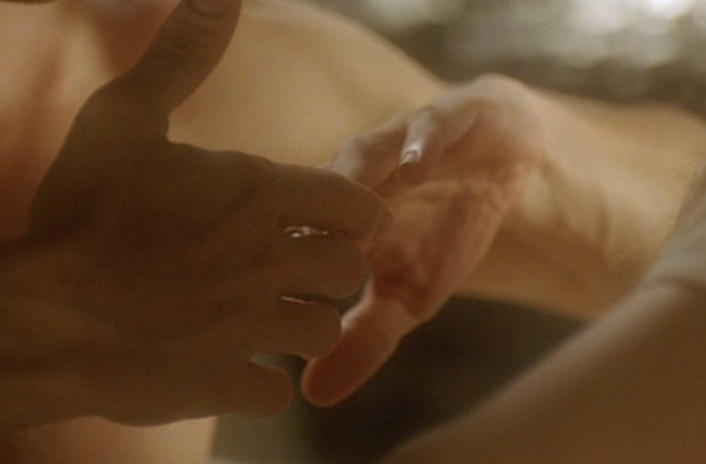
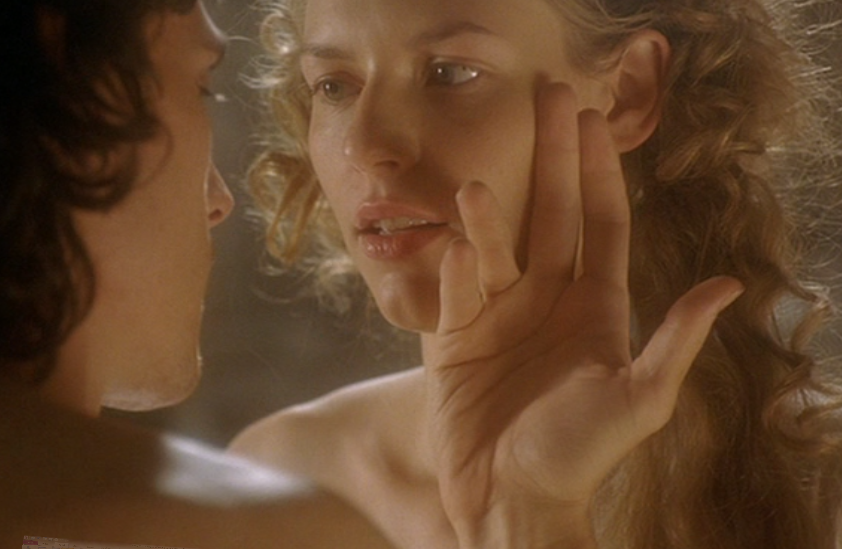
But then, of course, Ned is so turned on by their mutual gender play that he asks this: "How do you die? As Desdemona. How do you die?" As he's said before, Ned loves the death scene at the end of Othello; he loves the theatrical, dramatic beauty of Desdemona's death. So he wants Mariah to describe her scenes to him as a kind of dirty talk.
But for Mariah, this is an instant and sudden turn-off. She gets out of bed immediately, and then says these wince-inducing lines: "Your old tutor did you a great disservice. He trapped you in a woman's form and left you there to die. ….I always hated you as Desdemona. You never fought. You just died beatifully. No woman would die like that, no matter how much she loved him. A woman would FIGHT."
Part of this is blatantly untrue, of course, because she loved his Desdemona at the beginning of the movie, but we'll give her the beneift of the doubt. My reading of this (possibly a counter-reading) is that Ned's fetishization of femininity makes Mariah nervous: while they both might like the beautiful/angelic style of femininity that Ned prefers, Mariah also experiences her gender in other ways, as attached also to passion, anger, and suffering. She's worried that Ned might not appreciate those parts of her, because as he said earlier in this scene, he thinks of strong emotions as "ugly." He likes performing beauty.
Mariah storms off, and then several things happen very quickly: a theater needs a Desdemona on short notice, and they ask Mariah. Mariah refuses, because she thinks she's an awful actor. Mariah's friends, Samuel Pepys and Nell Gwynn, go off to find Ned to help teach her how her act. Apparently the main reason that Mariah is not a good actor, is because she does Ned. She does his particular kind of stylized femininity. And for some reason, they have come to Ned to help Mariah be a better (read: un-Ned-like) actor. This makes no sense, but who cares? Ned wants to get the death scene right, and agrees to do it for a share in the company.
He says to Mariah: "I'm not teaching you to be a woman; I’m teaching you to be Desdemona." So they rehearse the death scene, performing it in a radically different way than either of them had done before. One way to describe the new style is the way they do in the special features for the movie, in which one of the actors says, "We kind of invent naturalistic acting at the end of the film." I...don't like that way of saying it, because it points to the idea that there are "natural" or "right" ways to perform gender. A different way to say it is that they try on just another style of performance for masculinity and femininity, that Ned is experimenting with a different kind of performance--one that involves ugly, scary feelings.
Also, Mariah ends the teaching scene with: "Throw me on the bed, kill me, finish me off. " Remember that "die" is a euphemism for orgasm during this time, and this line sounds waaaaay better. When you read every performance in this movie as a kinky one, the whole thing gets better and better.
What happens next is confusing, at the very least. Ned announces that he is playing Othello, and Mariah, relieved that she doesn't have to try this new style of acting with someone else, backs him up. Mariah and Ned chat for a second, with Ned announcing out the of the blue: "I blame you for my death." Mariah is confused by this, but all he says in explanation is "See you on stage." He then takes up a mirror and starts in on the speech that he couldn't get right at the palace: "It is the cause, it is the cause, my soul." This is, of course, Othello's speech of angry jealous rage where he decides to kill Desdemona.
And then we see them act the scene. It's a rush of a scene, and when Ned starts to "suffocate" her with the pillow, Mariah cries out a line that isn't in the script, "Help! He's killing me!" And as she lies there, unmoving, and they all wait for her to say her dying lines, the look on Ned's face tell us that he's not sure she's going to wake up. But she does, and the crowd roars, and they pause the scene to take bows. It's a triumphant scene, except that Ned might have tried to kill her? What?
This is the entirety of the final scene between them:
MARIAH: "You almost killed me."
NED: "I did kill you; you just didn't die."
MARIAH: "Why didn't you finish me off?"
NED: "I finally got the death scene right."
(Mariah look this is the hottest thing she's ever heard and attacks him with her mouth. They kiss and get Ned's makeup on both of them. She wipes at his face with a curtain.)
MARIAH: "So, who are you now?"
NED: "I don't know. I don't know."
She grins, and he grins, and they look like they're about to fuck right there on the stage.
So, I think we're meant to believe that Ned sought some kind of revenge on Mariah, had decided to kill her, and halfway through the death scene, decided not to? Because the death scene as they played it was so pleasurable or desirable or something for him that it was worth keeping Mariah around? Or it made him change his need for revenge, because it's possible for him to go on performing beauty in a different way? I don't even know, guys. The ending is weird. It's straight up weird. I...tend to gloss over those parts when I'm being fannish about this movie.
So, one critique of this film is that, because Ned ends up acting a man's part, and ends the play kissing a woman, that heteronormativity wins out and Ned is half-assed "cured" of his identity crisis. I think this is a valid critique. And even though the writer has protested that zie actually wrote the end to avoid that implication, it's still there. It's there in spades.
And it's definitely weird that Ned's strange assassination attempt seems to be a turn-on for Mariah? That's...problematic and strange and doesn't make a whole lot of sense to me. (Unless we read it as Mariah being attracted to traditional macho assertions of power? But I don't like that reading. Maybe if we see it as Mariah being attracted to the idea of performing with Ned in general?)
But there's also his last line: "I don't know," which leaves room for ambiguity. And I like the visuals of the last scene, where they're both kind of stripped down and sweating and they've got makeup smeared on both their faces and they're both really, really turned on by acting together and playing at gender in new ways. I think it leaves room for me to fannishly imagine that Ned and Mariah go on to be together, and sometimes they get dolled up in their gorgeous satin dresses together, and make sweet, sweet, stylized love involving all the high-flying forms of femininity that Ned loves. Or sometimes they do macho-man-murders-innocent-woman scenes a la Othello. They switch up the roles, now and then. And they lived happily ever after, in the kinky fluidity of their gender performances. That is what I like to think.
*sigh*
So what do you think? If you've seen this movie, what's your take on it? If you end up seeing this movie as a result of this post, definitely come back and tell me what you thought!
Also, a long-winded explanation of why I love Stage Beauty and why it's full of gender play and love and rainbows, and also why it's super easy to re-imagine its stupid, heteronormative ending in a kinkier, more progressive fashion.
This post is a fill for the gender play square on my

kink_bingo card!
Teasers:



"Never forget: you're a man in woman's form. Or was it the other way around?"
001

002

003

004

005

006

007

008

009

010

011

012

013

014

015

016

017

018

Table created with accio.nu'sicon table(less) generator
Icons 1-8 are from four different stage productions of Compleat Female Stage Beauty; 9-18 are from the 2004 movie Stage Beauty.
Textures used are from lookslikerain, cookiestome, and navras_rheya.
Why Stage Beauty is Super Fun and Full of Gender Play:
Oh, Stage Beauty. Let me tell you about Stage Beauty.
Stage Beauty is a 2004 movie based on a play by Jeffrey Hatcher called Compleat Female Stage Beauty. The screenplay for the movie was also written by Hatcher, so there's a high degree of fidelity between movie and play. The story is based roughly on real people, and a real change in English law, although the specific story is entirely fictional.
Here's the jist: it's the mid-17 century and Edward "Ned" Kynaston is the most famous actor on the English stage. Our friend Ned is famous because he is a) gorgeous and b) a super good actor. In fact, he's considered by some people to be the most beautiful woman in the world; one of the great diarists of the time, Samuel Pepys, calls him a "compleat female stage beauty." Because Ned plays women. As it is illegal for women to act on stage, men and boys portray those parts, and Ned has trained his whole life to do so. At the beginning of the movie, he's portraying Desdemona in Othello.
He is very pretty. See!


Ned loves his job. He loves performing femininity; he loves his costumes and wigs; he loves his fame and interacting with fans. For him, gender play is more than putting on a mask. He describes with pride the long training sessions he had with his old tutor, when he spent months working on movement and intonation. It's not only part of his identity; it's a source of incredible pleasure.
I'm using "he" because that's how Ned refers to himself in the film, but of course, it's the 17th century, and Ned's trying to fit his sense of self into a binary gender system. Ned makes lots of twisty statements like this when he's describing his relation to gender:
NED: "[My tutor] said, 'Never forget: you're a man in woman's form.' *pauses, thinks* Or was it the other way around?"
or
(in response to someon who suggested that his best role was Rosalind, a Shakespearean heroine who dresses up as a man): "Do you know why the man 'stuff' seems so real? Because I'm pretending...If you saw him without the her he lives inside, he wouldn't seem a man at all."
So Ned's sense of gender is fluid. (I'd love to see some fanworks where Ned is straight-up trans. *adds to to-do list*) Regardless of his gender, though, he has a fascinating, eroticized, and kinky relationship to the performance of gender, and especially a particularly ornate style of femininity/femaleness. He loves the physicality of playing a beautiful, delicate woman, of moving gracefully, of making his voice go soft and bell-like. Billy Crudup does a great job of portraying Ned's sheer pleasure in those performances.
But he also takes pleasure in the idea of there being different pieces of himself that disrupt people's expectations. There's a scene in the beginning when a couple of lady fans take Ned--in full Desdemona costume--out in a carriage. They're fascinated by the idea that Ned has a cock under his dress, and Ned has great fun drawing their hands up his skirts and in hearing their gasps of aroused surprise when they feel his cock. (You can see part of that scene in the trailer below.)
Ned also has a boyfriend: the Duke of Buckingham. The Duke likes to fuck Ned with nothing on but a wig. At their midnight rendevous, the Duke shows him a playbill that claims there's a girl out there somewhere playing Desdemona. Ned is incensed.
"But. A woman playing a woman - what's the trick in that?"

Then there's Mariah. Mariah is Ned's assistant, and she is both a complete fangirl for Ned and desperate to be an actor. In fact, at the beginning of the film, she's borrowing Ned's wigs and sneaking off to perform in a tavern (the performance that Ned heard about!), where she pretends to be a man playing a woman. She, too, I would argue, is really into gender play. She's fascinated by the way that Ned performs female characters, and endeavors to copy Ned's performances, practicing his gestures and soft, flowy movements. She catches Ned with the Duke, and is shocked. My reading of this is that it's jealousy and not homophobia.
This is Mariah, as played by Claire Danes, helping Ned to practice his death scene. (She's playing Othello here, who suffocates Desdemona with a pillow.)


Whoops! Mariah lost her balance and ends up holding herself above Ned. Ned is all about taking the next step when you've got two lovely ladies pressed up against each other, but Mariah's shy and unsure and maybe a little jealous of the ladies who felt Ned up earlier in the evening.
Other things that are lovely about this movie?
RUPERT EVERETT is King Charles II. He has, as you might expect, many King Charles Cocker Spaniels. And Nell Gwynn, one of the most famous royal mistresses in history, is pretty awesome in this film. Her lower class origins are made fun of, but she's also very assertive, trying to help out Mariah and other women succeed on the stage.

They're divine. DIVINE. Especially when they themselves are engaging in a little gender play for a place musical. They seem to be dressed up as each other, which is just awesome.

And okay, so it's not all rainbows and unicorns. Ned may have fans, but those same people have mixed feelings about nontraditional gender roles. Ned gets called a "whore" and a "bum-boy" and treated like a sexual novelty for the consumption of the elite. And his problems get even bigger when the King declares that it's legal for women to act on stage, and his very own assistant becomes the first woman actor.
Convinced? Wanna see it? Take a peek at the trailer and the content notes below and go do so! (After the content notes are spoilers where I talk about the plot and ending.)
Content Notes for Stage Beauty:
This film is rated R and contains homophobia, sexism, attempted non-con, and explicit violence that is related to homophobia and gender policing. The ending is also problematic in that it seems to endorse gender essentialism (women should act like "women," and men should act like "men"), but I think it undermines itself in ways that allow for more positive readings. I'll talk about that below.
Spoilers!, or What Happens in Stage Beauty:
Ned is pissed when he finds out that it's his own assistant who's been the woman acting his part. He reveals her to the King in a fit of spite, but the King (in a fantastic speech by Rupert Everett) thinks it would be fun to see women perform, and gives permission. Well. Ned is even more pissed now, because his job is threatened. When Mariah shows up to audition for a supporting role in Othello, Ned gives her a scathing review. One problem: Nell Gwynn was listening in and is enraged that he would treat women so badly. She goes straight to the King and convinces him to make it illegal for men to act in women's roles. At the same time, Ned is lured away from the theater, attacked, and badly beaten by thugs belonging to some of the elites who felt wronged by him in the beginning of the movie.
Things go badly for Ned after this. He has no job, and he can't find work, since his career of choice isnow illegal. His boyfriend, the Duke, breaks up with him in a heartbreaking spiel of homophobia. "I don't want you. When I spent time with you, I always thought of you as a woman. ..I'd think, here I am in a play, inside Desdemona. Cleopatra. Ophelia. You're none of them now."
As a last resort, Ned sneaks into the palace to beg the King to allow him to act. Mariah is there with other elites, and she tries to help Ned out by proposing that he perform a man's role in order to prove himself. Ned looks at her askance, but she's prods him, saying that it may convince to King to let him play women. He attempts a soliloquy by Othello, starting off with a deep, masculine voice that is as much a performance as any other. But he slips out of it: his wrists flip up in one of his feminine, theatrical gestures; his voice jumps up into a higher register. Ned starts to cry when he realizes that he can't do it, and even Nell starts look as if she regrets changing the law.
I love this scene. It breaks my heart every time. Because Ned is up there trying to play Othello, and the King of England is judging him while wearing a dress. Ned had come in during the middle of a palace musical, in which the King was performing a woman's part and Nell performing a man's. And looking on is the assembled court of King Charles II, so it's incredibly ornate. Everybody is wearing makeup. Everybody is wearing a wig. Everybody is playing a part. And you're painfully aware of how arbitrary it is that Ned is being singled out and derided for wanting to play his part.
Some time after this, Mariah is having a career crisis; she may be the first woman actor, but she's worried that she's not actually any good. She goes to find Ned, who is playing a tavern, singing raunchy songs while half drunk, and picking up his skirts for jeering audiences. Mariah comes in during one of these displays, is horrified, and marches up on stage to grab Ned. The stage mistress tries to stop her, but Mariah shouts, "I want the lady!" and pays her 5 pounds to leave them alone. She takes Ned offstage.

(I, er, really like this short scene, because we get both Mariah and Ned in full, satiny dresses, and Mariah actually calls Ned a lady. It fuels all the plot bunnies I have about Ned being trans and them living together as beautiful lady actresses and doing kinky dress-up scenes together.)
The next scene is where, I think, the movie (and the play, I presume) starts to go really downhill in terms of essentializing gender. It's the next morning, in an inn somewhere, and Mariah has stripped Ned down and cleaned him off. After some conversation, she shucks her own dress and climbs in bed with him.
Mariah then asks about the mechanics of gay sex, and Ned stutters, explaining, even in gay sex, there's a "man" and there's a "woman," i.e. a top and a bottom. He says that he was the "woman." And then, because Ned is a hands-on sort of teacher, they try out different positions. Each time, Mariah asks, "Who are you?" or "Who am I?", and Ned explains each time who is the "man" and who is the "woman." They get rather breathless from this, with Ned ending up repeating, "You're the woman. You're the woman."
So the not-so sympathetic but perfectly valid critique here is that, over the course of this scene, they are settling into their "real" genders: Mariah is the real "woman." Which is bullshit, obviously. In my own, fannish counter-reading, I like to think that they're really getting off on the play itself, in the genderswitching and in each other's performances. It's not that Mariah is the real woman; it's that Ned is turned on by Mariah-as-woman. I think this is backed up by what happens next: Ned and Mariah use their hands to make the graceful, theatrical gestures that they both love, moving their hands together and touching each other's faces in stylized, "feminine" ways. It's gender play at its finest.


But then, of course, Ned is so turned on by their mutual gender play that he asks this: "How do you die? As Desdemona. How do you die?" As he's said before, Ned loves the death scene at the end of Othello; he loves the theatrical, dramatic beauty of Desdemona's death. So he wants Mariah to describe her scenes to him as a kind of dirty talk.
But for Mariah, this is an instant and sudden turn-off. She gets out of bed immediately, and then says these wince-inducing lines: "Your old tutor did you a great disservice. He trapped you in a woman's form and left you there to die. ….I always hated you as Desdemona. You never fought. You just died beatifully. No woman would die like that, no matter how much she loved him. A woman would FIGHT."
Part of this is blatantly untrue, of course, because she loved his Desdemona at the beginning of the movie, but we'll give her the beneift of the doubt. My reading of this (possibly a counter-reading) is that Ned's fetishization of femininity makes Mariah nervous: while they both might like the beautiful/angelic style of femininity that Ned prefers, Mariah also experiences her gender in other ways, as attached also to passion, anger, and suffering. She's worried that Ned might not appreciate those parts of her, because as he said earlier in this scene, he thinks of strong emotions as "ugly." He likes performing beauty.
Mariah storms off, and then several things happen very quickly: a theater needs a Desdemona on short notice, and they ask Mariah. Mariah refuses, because she thinks she's an awful actor. Mariah's friends, Samuel Pepys and Nell Gwynn, go off to find Ned to help teach her how her act. Apparently the main reason that Mariah is not a good actor, is because she does Ned. She does his particular kind of stylized femininity. And for some reason, they have come to Ned to help Mariah be a better (read: un-Ned-like) actor. This makes no sense, but who cares? Ned wants to get the death scene right, and agrees to do it for a share in the company.
He says to Mariah: "I'm not teaching you to be a woman; I’m teaching you to be Desdemona." So they rehearse the death scene, performing it in a radically different way than either of them had done before. One way to describe the new style is the way they do in the special features for the movie, in which one of the actors says, "We kind of invent naturalistic acting at the end of the film." I...don't like that way of saying it, because it points to the idea that there are "natural" or "right" ways to perform gender. A different way to say it is that they try on just another style of performance for masculinity and femininity, that Ned is experimenting with a different kind of performance--one that involves ugly, scary feelings.
Also, Mariah ends the teaching scene with: "Throw me on the bed, kill me, finish me off. " Remember that "die" is a euphemism for orgasm during this time, and this line sounds waaaaay better. When you read every performance in this movie as a kinky one, the whole thing gets better and better.
What happens next is confusing, at the very least. Ned announces that he is playing Othello, and Mariah, relieved that she doesn't have to try this new style of acting with someone else, backs him up. Mariah and Ned chat for a second, with Ned announcing out the of the blue: "I blame you for my death." Mariah is confused by this, but all he says in explanation is "See you on stage." He then takes up a mirror and starts in on the speech that he couldn't get right at the palace: "It is the cause, it is the cause, my soul." This is, of course, Othello's speech of angry jealous rage where he decides to kill Desdemona.
And then we see them act the scene. It's a rush of a scene, and when Ned starts to "suffocate" her with the pillow, Mariah cries out a line that isn't in the script, "Help! He's killing me!" And as she lies there, unmoving, and they all wait for her to say her dying lines, the look on Ned's face tell us that he's not sure she's going to wake up. But she does, and the crowd roars, and they pause the scene to take bows. It's a triumphant scene, except that Ned might have tried to kill her? What?
This is the entirety of the final scene between them:
MARIAH: "You almost killed me."
NED: "I did kill you; you just didn't die."
MARIAH: "Why didn't you finish me off?"
NED: "I finally got the death scene right."
(Mariah look this is the hottest thing she's ever heard and attacks him with her mouth. They kiss and get Ned's makeup on both of them. She wipes at his face with a curtain.)
MARIAH: "So, who are you now?"
NED: "I don't know. I don't know."
She grins, and he grins, and they look like they're about to fuck right there on the stage.
So, I think we're meant to believe that Ned sought some kind of revenge on Mariah, had decided to kill her, and halfway through the death scene, decided not to? Because the death scene as they played it was so pleasurable or desirable or something for him that it was worth keeping Mariah around? Or it made him change his need for revenge, because it's possible for him to go on performing beauty in a different way? I don't even know, guys. The ending is weird. It's straight up weird. I...tend to gloss over those parts when I'm being fannish about this movie.
So, one critique of this film is that, because Ned ends up acting a man's part, and ends the play kissing a woman, that heteronormativity wins out and Ned is half-assed "cured" of his identity crisis. I think this is a valid critique. And even though the writer has protested that zie actually wrote the end to avoid that implication, it's still there. It's there in spades.
And it's definitely weird that Ned's strange assassination attempt seems to be a turn-on for Mariah? That's...problematic and strange and doesn't make a whole lot of sense to me. (Unless we read it as Mariah being attracted to traditional macho assertions of power? But I don't like that reading. Maybe if we see it as Mariah being attracted to the idea of performing with Ned in general?)
But there's also his last line: "I don't know," which leaves room for ambiguity. And I like the visuals of the last scene, where they're both kind of stripped down and sweating and they've got makeup smeared on both their faces and they're both really, really turned on by acting together and playing at gender in new ways. I think it leaves room for me to fannishly imagine that Ned and Mariah go on to be together, and sometimes they get dolled up in their gorgeous satin dresses together, and make sweet, sweet, stylized love involving all the high-flying forms of femininity that Ned loves. Or sometimes they do macho-man-murders-innocent-woman scenes a la Othello. They switch up the roles, now and then. And they lived happily ever after, in the kinky fluidity of their gender performances. That is what I like to think.
*sigh*
So what do you think? If you've seen this movie, what's your take on it? If you end up seeing this movie as a result of this post, definitely come back and tell me what you thought!